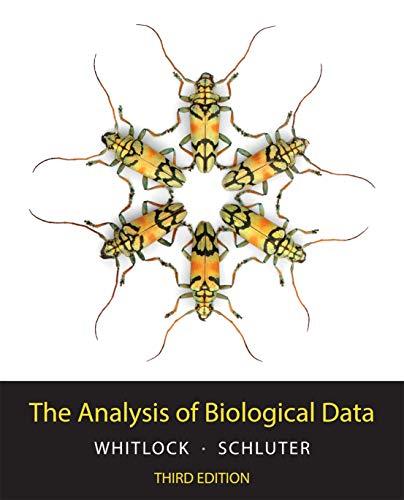Kirsch (2010) argues that in double-blind clinical trials to test the effects of antidepressants, a large fraction
Question:
Kirsch (2010) argues that in double-blind clinical trials to test the effects of antidepressants, a large fraction of patients figure out whether they have been given the antidepressant or the placebo by noticing the presence or absence of known side effects of the antidepressant. Doctors evaluating the patients are also able to determine which treatment patients are receiving. How might this situation affect the results of the clinical trial? Specifically, is the treatment effect (difference between the means of the antidepressant and placebo treatments) likely to be overestimated, underestimated, or unaffected by this knowledge?
Fantastic news! We've Found the answer you've been seeking!
Step by Step Answer:
Related Book For 

The Analysis Of Biological Data
ISBN: 9781319226237
3rd Edition
Authors: Michael C. Whitlock, Dolph Schluter
Question Posted:





